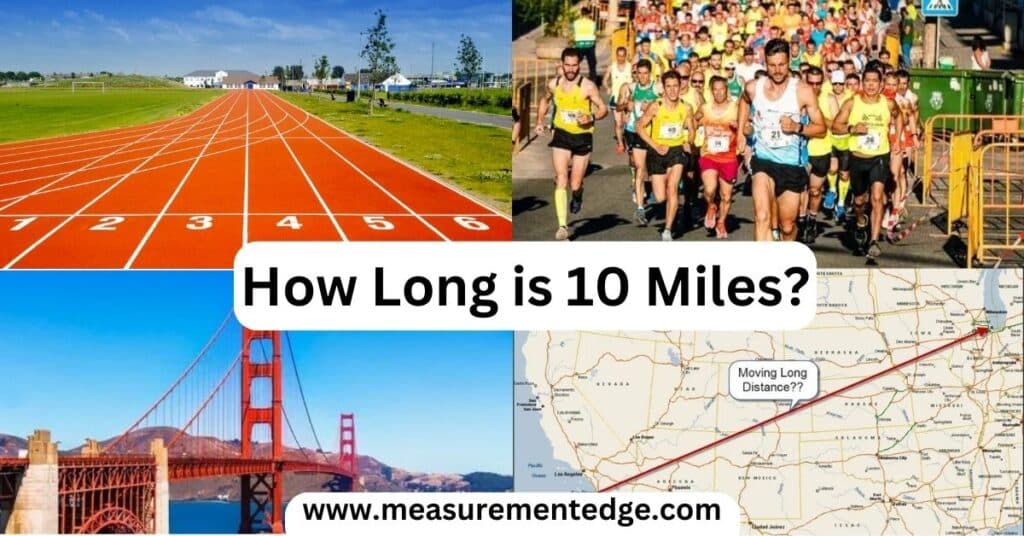Understanding the distance of 10 miles can help you visualize your daily activities whether you’re walking driving or planning a fitness routine. In this blog post How Long is 10 Miles? 9 Common Comparisons we’ll delve into various examples that make 10 miles more relatable and easier to grasp. From laps around a soccer field to trips around the Lincoln Memorial Reflecting Pool these comparisons will not only help you conceptualize 10 miles but also provide insight into how long it takes to cover this distance through different modes of transport.
How Far is 10 Miles to Walk?
Walking 10 miles is a common fitness goal for many people. Depending on your pace, this distance can take anywhere from 2.5 to 3.5 hours at an average walking speed of 3 to 4 miles per hour. For a leisurely stroll, you might find yourself spending between 5 to 6.5 hours on this trek, especially if you’re enjoying the scenery or taking breaks.
Walking Speed and Endurance
The time it takes to walk 10 miles varies based on your walking pace. The following table summarizes average walking speeds and the corresponding time it takes to cover 10 miles:
| Walking Pace | Speed (miles per hour) | Time (hours) | Total Steps (approx.) |
|---|---|---|---|
| Average Walking Pace | 3 – 4 | 2.5 – 3.5 | 20,000 |
| Leisurely Walking Pace | 1.5 – 2 | 5 – 6.5 | 20,000 |
When planning a walking route, it’s important to consider your fitness level and the terrain you’ll encounter. Factors such as elevation changes, trail conditions, and even weather can impact your walking speed and overall experience.
CLICK HERE .if you need more informative thingsHow Long is 10 Miles When Driving?
Driving 10 miles typically takes around 10 minutes when cruising at 60 miles per hour on the highway. However, in urban settings with frequent stops and traffic, this time can extend to about 20 minutes at an average speed of 30 miles per hour.
Driving Speed and Conditions
To illustrate how driving speed influences the time it takes to cover 10 miles, consider the following table:
| Speed | Time to Cover 10 Miles |
|---|---|
| 60 mph (highway) | 10 minutes |
| 30 mph (urban) | 20 minutes |
| 15 mph (heavy traffic) | 40 minutes |
These variations emphasize how traffic conditions can significantly affect your travel time. Road construction, accidents, and even weather conditions can create delays that make what seems like a short drive longer than expected.
1. 40 Laps Around a Standard Running Track
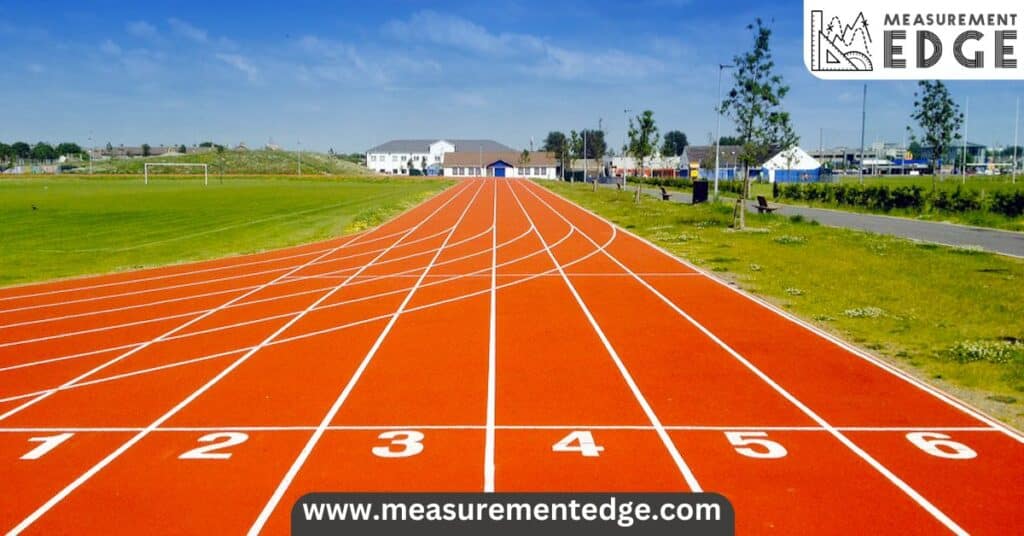
A standard running track measures 400 meters, which translates to approximately 0.25 miles per lap. To cover 10 miles, you would need to complete 40 laps around the track. This comparison is particularly useful for runners and athletes looking to gauge their distance without relying solely on GPS devices or fitness apps.
Walking or running 10 miles around a standard track involves covering a total of 40 laps. This distance serves as a straightforward measurement that can help runners plan their training sessions effectively.
Comparison of Laps Around a Running Track
| Measurement | Total Distance | Laps Needed for 10 Miles |
|---|---|---|
| Standard Running Track | 0.25 miles | 40 |
This direct comparison provides runners a practical benchmark for their training, allowing them to monitor their progress effectively.
2. 50 Laps Around a Soccer Field
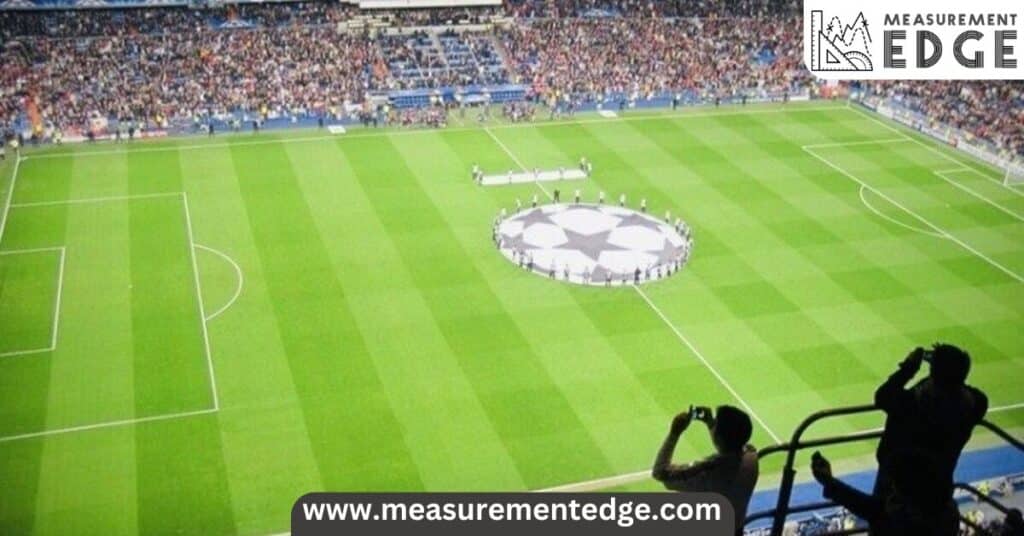
A regulation soccer field typically measures between 100 and 110 meters in length. For this comparison, let’s average it to 105 meters. To walk the perimeter of a soccer field (approximately 360 feet), you would need to complete 50 laps to cover 10 miles.
Calculating the average perimeter of a soccer field provides a clear way to visualize this distance:
Soccer Field Measurement Breakdown
| Measurement | Total Distance | Laps Needed for 10 Miles |
|---|---|---|
| Average Length of Soccer Field | 105 meters | 50 |
This is a great way for sports enthusiasts to conceptualize 10 miles as part of their training regimen. By counting laps on a soccer field, you can keep your workouts varied and engaging.
3. Trips Around the Reflecting Pool at the Lincoln Memorial
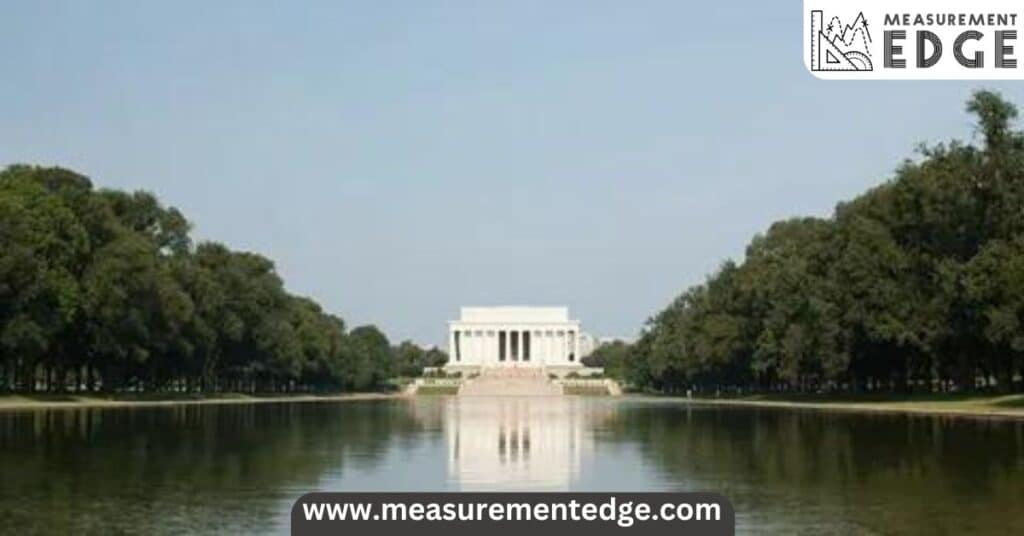
The Lincoln Memorial Reflecting Pool in Washington, D.C., is approximately 2,000 feet long. If you plan to walk the length of this iconic pool, it takes 12 trips back and forth to equal 10 miles.
To break this down, here’s how it works:
- Length of One Trip: 2,000 feet (approx. 0.38 miles)
- Total Length for 12 Trips: 12,000 feet, which equals 2.27 miles (including return trips)
This scenic route not only offers a historic backdrop but also serves as a lovely walking path that many visitors enjoy while exploring the National Mall.
Reflecting Pool Measurement Summary
| Measurement | Total Distance Covered | Trips Needed for 10 Miles |
|---|---|---|
| Length of Lincoln Memorial Pool | 2,000 feet (0.38 miles) | 12 |
By visualizing 10 miles in this way, you can incorporate historical landmarks into your walking routine, making fitness both enjoyable and educational.
4. Six Times the Length of the Golden Gate Bridge

The Golden Gate Bridge measures approximately 1.7 miles from one end to the other. To match the 10 miles distance, you would need to walk across the bridge six times.
This calculation illustrates:
Golden Gate Bridge Distance Comparison
| Measurement | Total Distance | Crossings Needed for 10 Miles |
|---|---|---|
| Length of Golden Gate Bridge | 1.7 miles | 6 |
This iconic landmark is not just a symbol of San Francisco; it also provides a stunning walking experience. Walking the bridge multiple times can be a great way to combine fitness with sightseeing.
5. One and a Half Loops Around Central Park

A complete loop around Central Park measures about 6.1 miles. To walk 10 miles, you would complete approximately 1.5 loops around this iconic urban park.
This can be summarized as follows:
Central Park Loop Measurement
| Measurement | Total Loop Distance | Loops Needed for 10 Miles |
|---|---|---|
| Central Park Loop | 6.1 miles | 1.5 |
Exploring Central Park is a fantastic way to cover distance while enjoying nature, making it an excellent option for both locals and tourists looking to combine exercise with leisure.
6. Approximately 20,000 Steps
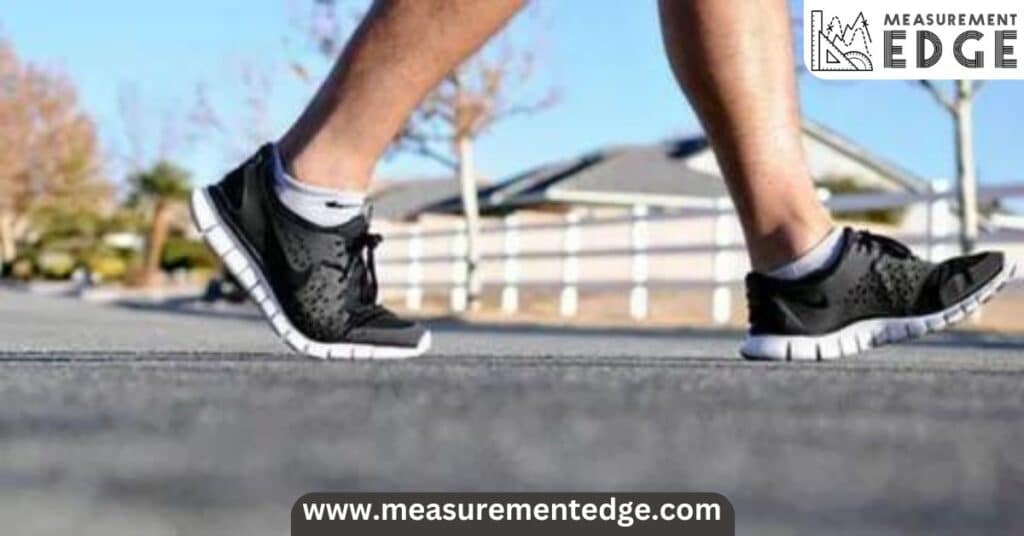
Walking 10 miles amounts to about 20,000 steps for the average person, based on a stride length of about 2.5 feet. Tracking steps using a pedometer or smartphone can help you achieve your daily activity goals while providing a sense of accomplishment.
To elaborate further on the step counts, here’s a breakdown:
Step Count Breakdown for 10 Miles
| Measurement | Steps per Mile | Total Steps for 10 Miles |
|---|---|---|
| Average Steps per Mile | 2,000 | 20,000 |
Using a step counter can help you set daily goals and keep track of your progress.
7. 2/5 of a Marathon
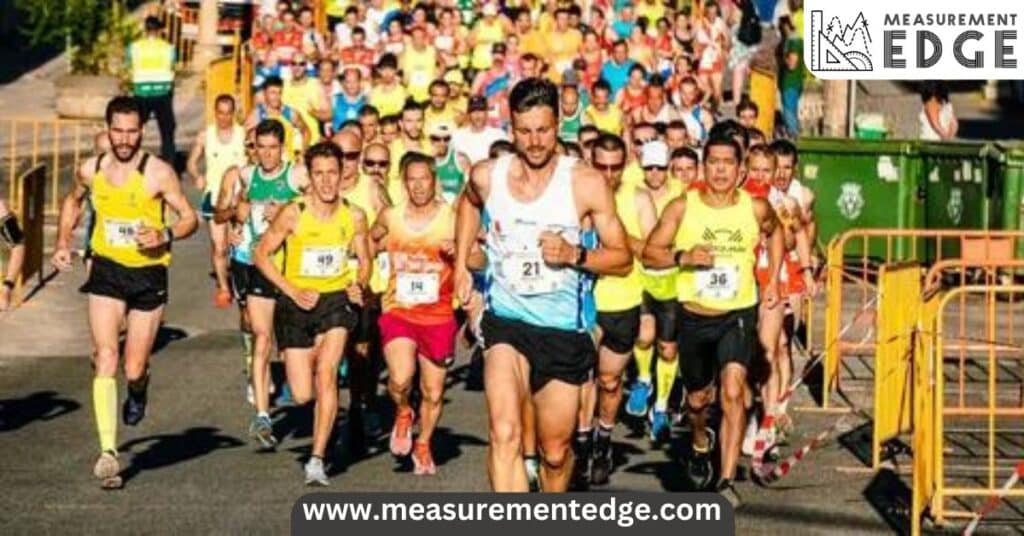
A full marathon covers a distance of 26.2 miles, so 10 miles is approximately 2/5 of that total. This distance serves as a solid benchmark for many runners, especially those training for shorter races.
To summarize this concept, consider:
Marathon Distance Comparison
| Measurement | Total Distance | Portion of Marathon |
|---|---|---|
| Full Marathon | 26.2 miles | 10 miles (2/5) |
For many, completing 10 miles can be a significant achievement and a stepping stone toward running a marathon. It is a common distance in training programs for marathon runners.
8. Distance Between Major Cities
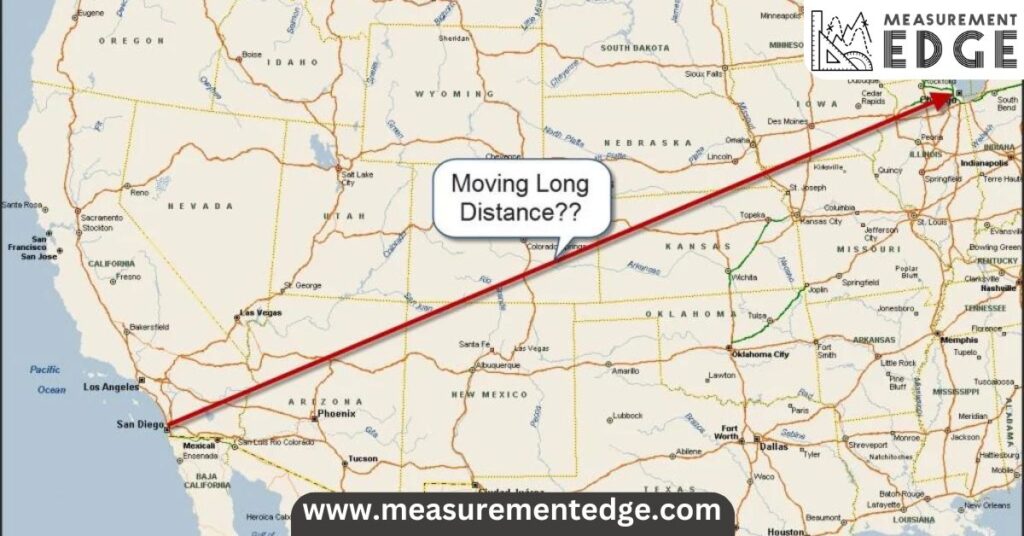
In urban areas, 10 miles can represent a short distance between neighborhoods or cities. For instance, 10 miles separates San Francisco from Oakland, making it a reasonable drive or bike ride.
This perspective helps illustrate the practical aspect of 10 miles in city planning:
Major City Distance Comparison
| City Distance | Distance |
|---|---|
| San Francisco to Oakland | 10 miles |
| Manhattan to Brooklyn | Approximately 10 miles |
Knowing the distances between cities can help you plan trips or gauge how long it might take to visit friends or family in neighboring areas.
9. The Equivalent of About 1.5 Hours of Cycling
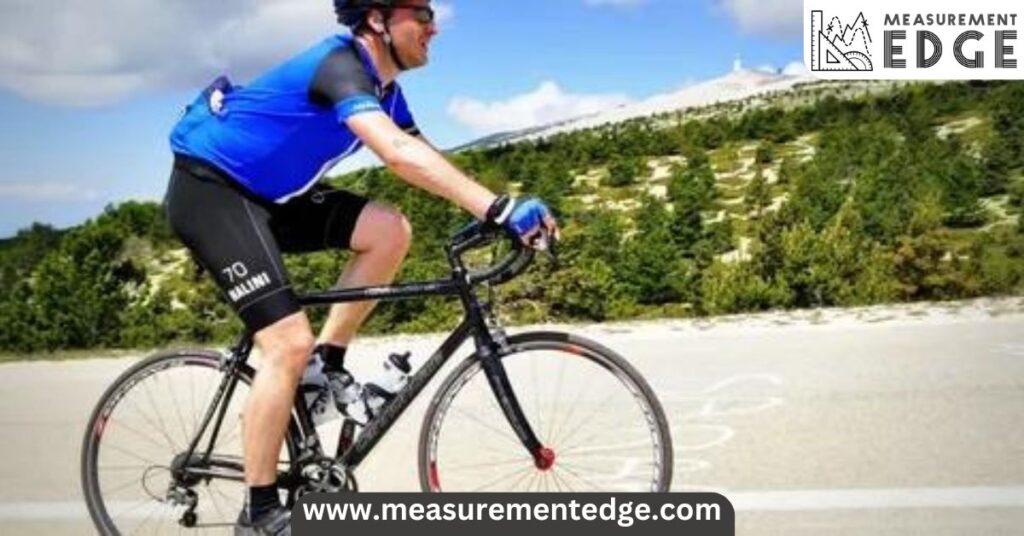
Cycling 10 miles typically takes about 1.5 hours depending on your cycling speed. The average cyclist travels at about 6-10 miles per hour making this distance an accessible goal for those looking to incorporate biking into their fitness routine.
To clarify how cycling speed can influence the time needed to cover 10 miles, here’s a table:
| Cycling Speed | Time to Cover 10 Miles |
|---|---|
| 10 mph (average cyclist) | 1 hour |
| 6 mph (leisurely ride) | 1.5 hours |
This time estimation helps cyclists set realistic goals for their rides while enjoying the outdoors.
Conclusion
Understanding the distance of 10 miles can provide valuable context for various activities, from walking and driving to running and cycling. By comparing this distance to familiar landmarks and experiences, you can better visualize and integrate it into your daily life. Whether you’re setting fitness goals or planning trips, these comparisons can help you appreciate the significance of 10 miles in your world.
This version maintains the engaging format while providing structured tables and informative paragraphs. Let me know if you’d like any further modifications or additional information!
CLICK HERE .if you need more informative things
Harry Zarek is an author at Recently Info, a blog dedicated to providing accurate and insightful guides on measurements and dimensions. With a passion for simplifying complex concepts, Harry helps readers understand the world through precise and practical information.

